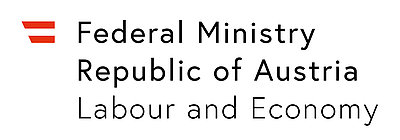
The FIW - Research Centre International Economics (https://www.fiw.ac.at/) is a cooperation between the Vienna University of Economics and Business (WU), the University Vienna, the Johannes Kepler University Linz, the University of Innsbruck, WIFO, wiiw and WSR. FIW is supported by the Austrian Federal Ministries of Education, Research and Science (BMBFW) and of Labour and Economy (BMAW).
FIW Newsletter
Stay informed and subscribe to the FIW-Newsletter.
Search the FIW-Bibliography-Database
| File: |
Abstract: In this study CO2 emissions embodied in Austrian international trade are quantified employing a 66-region input output model of multidirectional trade. We find that Austria’s final demand CO2 responsibilities on a global scale are 38% higher than conventional statistics report (110 Mt-CO2 versus 79 Mt-CO2 in 2004). For each unit of Austrian final demand, currently two thirds of the thus triggered CO2 emissions occur outside Austrian borders. We then develop a 19-region computable general equilibrium model of Austria and its major trading partners and world regions to find that future Austrian climate policy can achieve the EU 20-20 emission reduction targets, but that its carbon trade balance would worsen considerably. Both unilateral EU and internationally coordinated climate policies affect Austrian international trade stronger than its domestic production.
| File: |
Abstract: The study examines the impact of Austrian outward foreign direct investments (FDI) on home based parent company employment. The analysis is based on the AMADEUS firm-level database and an improved methodology by applying matching methods and the difference in difference estimator. In this way we are able to overcome the major shortcomings of earlier studies on the home market effects of Austrian outward FDI, which included data on foreign direct investors only leading to biased estimates and preventing the deduction of causal relationships. Overall the results indicate that investing abroad strengthens the employment performance in the home country. This is also true for Austrian foreign direct investments in Eastern European locations. We also analyse the major factors determining the firms' decision to invest abroad as well as decisions on the degree of multinationality, which we measure by the number of foreign affiliates owned. Firm size, firm age, the capital intensity and the number of shareholders are significant determinants for the number of subsidiaries. The analysis also corroborates theoretical results establishing the fact that foreign direct investment activities are driven by firm specific advantages and a superior productivity performance in the pre-investment period. Thus, firms that start foreign activities are ex-ante different from non-investing purely domestic firms.
| File: |
Abstract: In this study we provide detailed evidence on the importance and performance of exporters compared to non-exporters in Austrian manufacturing, based on firm level data. The results are in line with those found in other studies pointing towards the exceptional role of exporting firms with respect to various size and performance measures. We provide both descriptive as well as econometric evidence on these ‘export premia’ along these lines and further present a brief comparison with results found for other countries. Our findings however also suggest the existence of quite large differences across industries with respect to the export premia which deserves further attention.
